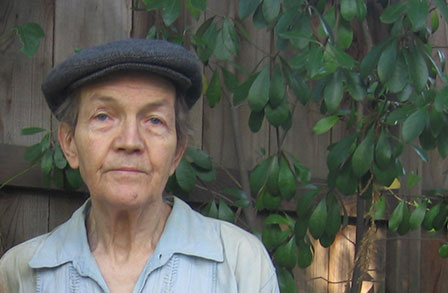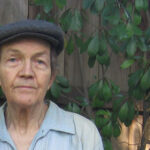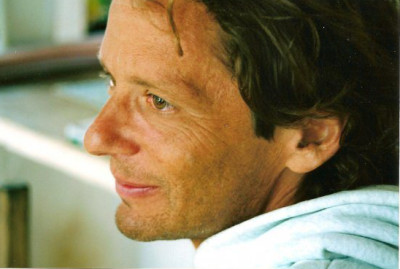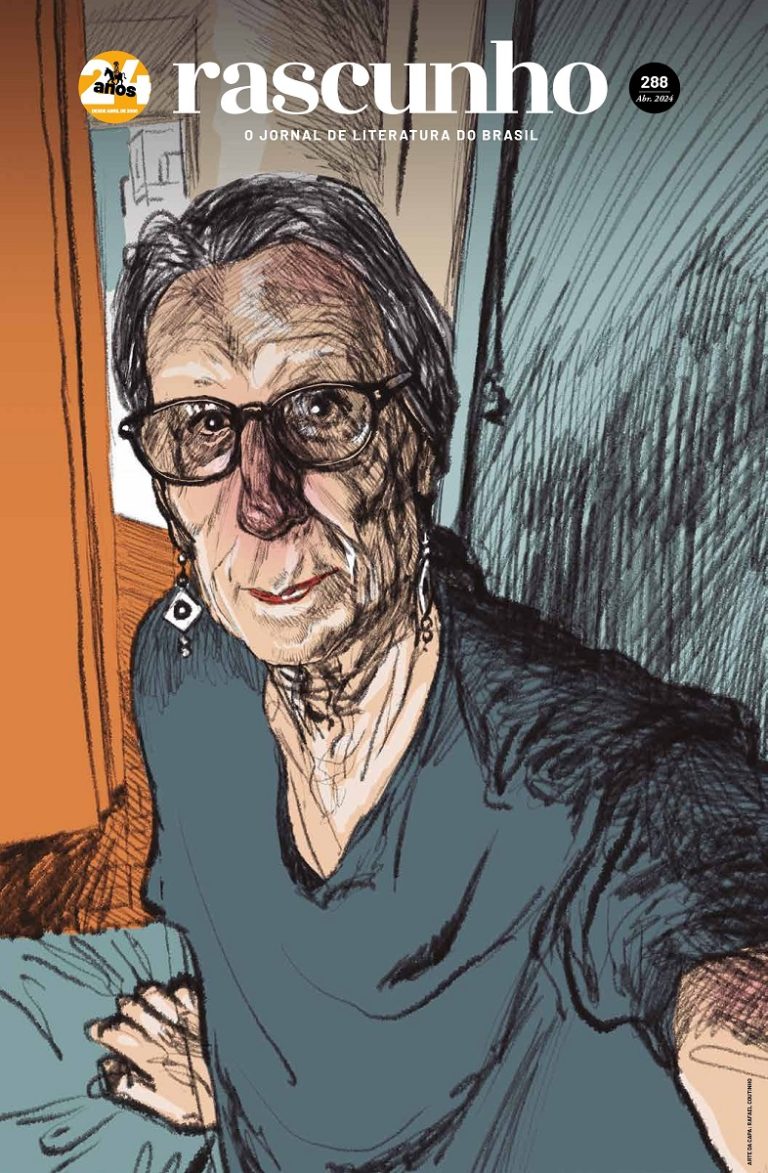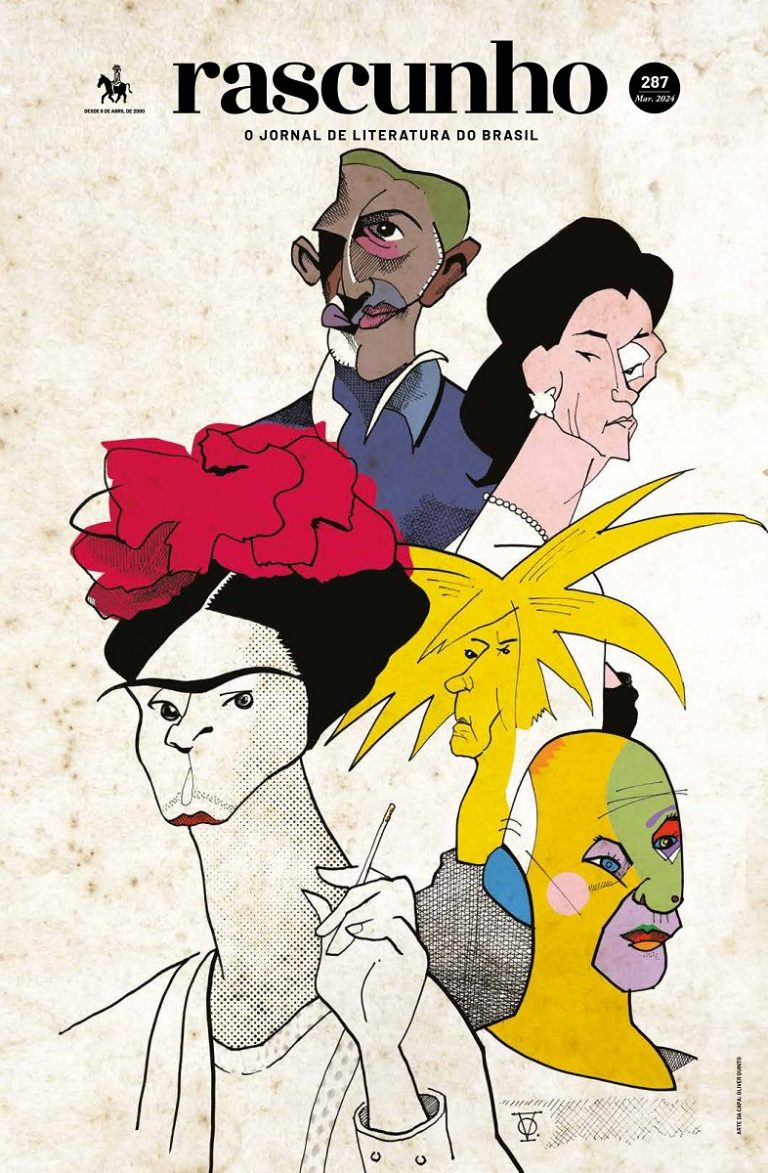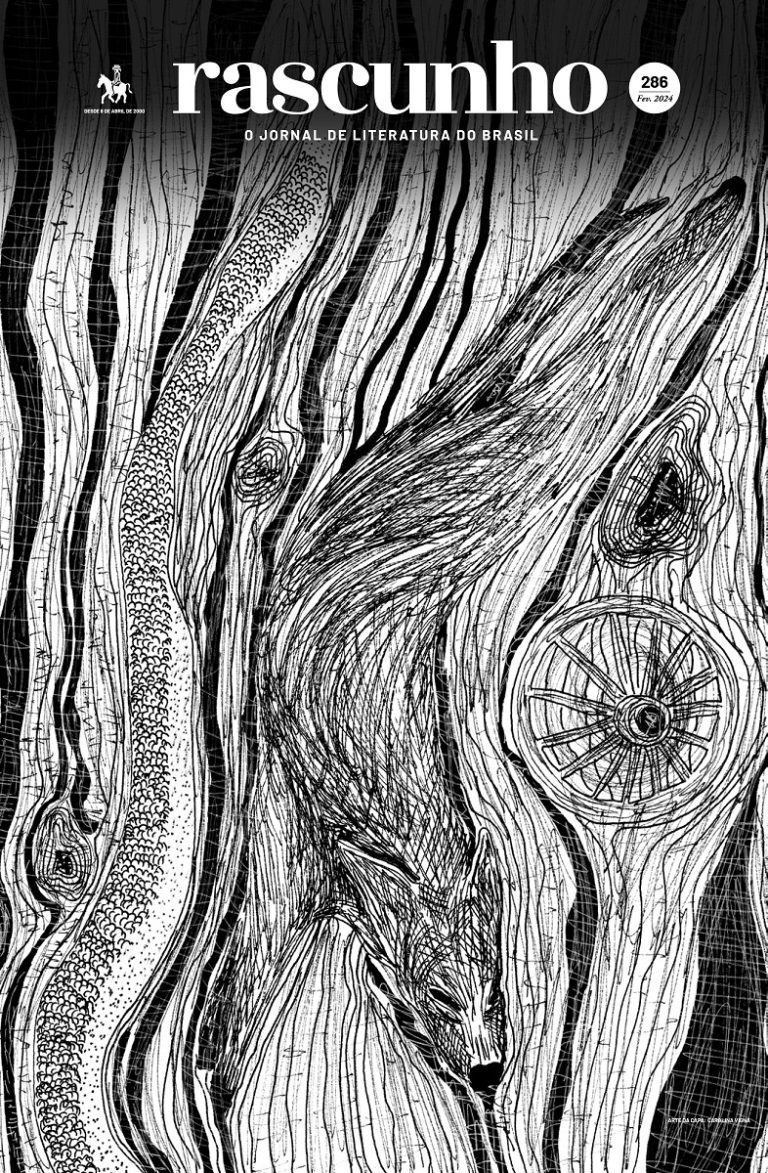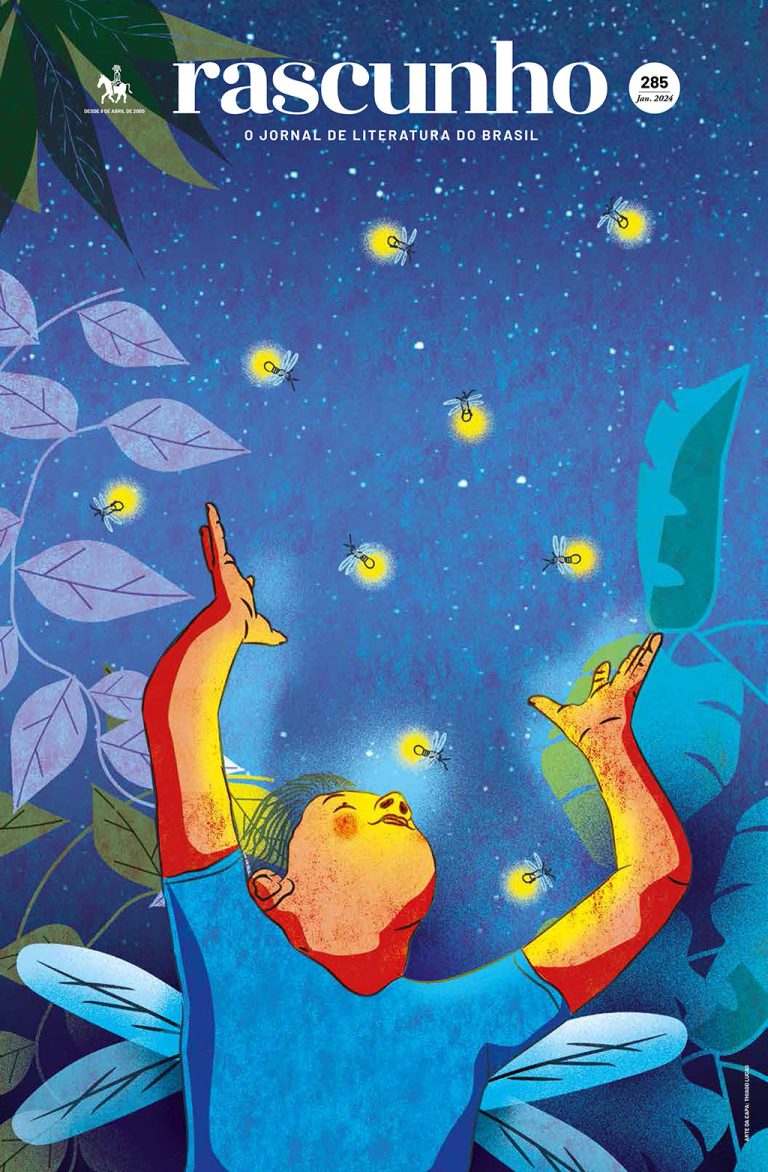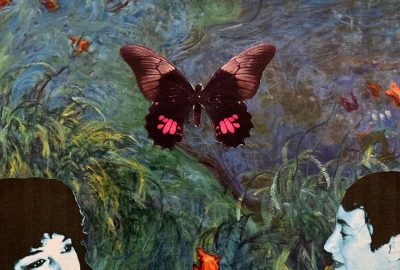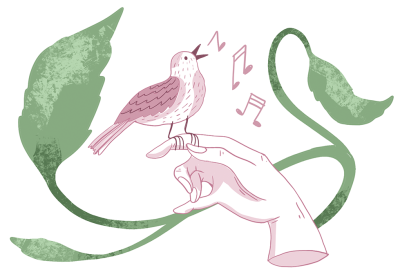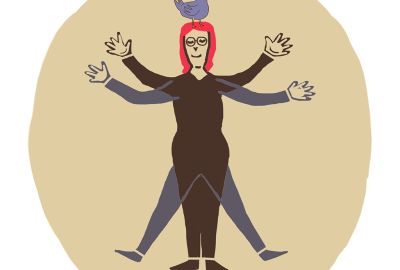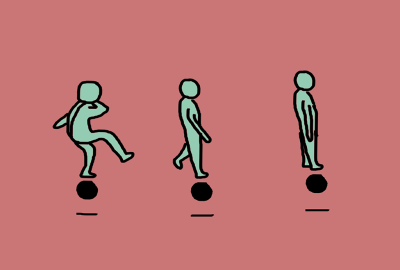Tradução e seleção: André Caramuru Aubert
The last poem (after Robert Desnos)
I’ve dreamed so much of you
Walked so much
Talked so much made love to your shadow
So much that there’s nothing left of you
What is left
Of me is a shadow
Among shadows but 100
Times more shadowy than the rest
A shadow that will come
To rest
In your life in which the sun
Is so much.
O último poema (depois de Robert Desnos)
Eu tenho sonhado tanto com você
Caminhado tanto
Falada muito feito amor com sua sombra
Tanto que não sobrou mais nada de você
O que sobrou
De mim é uma sombra
Entre sombras mas 100
Vezes mais sombria do que o resto
Uma sombra que virá
Para repousar
Na sua vida na qual o sol
É tanto.
…..
One
Light spray over a daisy chain of days.
Many wives, brought on rocking boats,
Dissolve into one loved damsel.
Jury of sighs, it is Time
To load the back with groceries
With my brother and my wife
Because life is family.
Did I drive right? Risky slopes.
Deer start across, hushed timber
Cool and the engine smoking.
When mouths of fog cover the truck
Pushed by wind, the ocean sends
Us violet shrouds, bears
Brush us in the dark eucalyptus.
Where the hawk dives, a flowing zone
Lights the road. A brown head whispers
In the restless advance of trees
And cars, friends of lonesome men
In the brunt of a huge wave.
Um
A luz se espalha por sobre uma corrente de dias de margaridas.
Muitas esposas, trazidas em botes que balançam,
Se dissolvem em uma única donzela.
Provisórios suspiros, é Tempo
De se carregar o porta-malas com mantimentos
Com meu irmão e minha esposa
Porque vida é família.
Eu dirigi bem? Declives arriscados.
Veados na pista, matas silenciosas
Frio e o motor fumando.
Quando bocas de neblina cobrem a caminhonete
Empurradas pelo vento, o oceano envia
Para nós mortalhas violetas, ursos
Esbarram em nós em escuros bosques de eucaliptos.
Onde o falcão mergulha, uma área alagadiça
Ilumina a estrada. Uma cabeça marrom sussurra
Sob o indócil avançar das árvores
E carros, amigos do homem solitário
Na crista de uma pesada onda.
…..
The blue dress
I close my eyes
and see you at the age of 30
beyond the mist of affect
in your blue dress
so slim and Viennese
in the Sharons’ picture gallery
at Tissa’s party
a stormy night in 1974
with the ocean roaring
against the breakwater
I find you there with
all my projections
withdrawn at last
and what appears is
you and your blue dress
in this bewildering recurrent
intensified mind garden
I call creation
because you created it for me
O vestido azul
Eu fecho os meus olhos
e vejo você aos 30 anos
além da névoa do afeto
em seu vestido azul
tão elegante e vienense
na galeria de arte de Sharon
na festa de Tissa
uma noite de tempestade de 1974
com o oceano rugindo
contra o quebra-mar
eu a encontrei lá com
todas as minhas representações
por fim retiradas
e o que aparece é
você e seu vestido azul
neste desnorteante recorrente
intenso jardim da mente
que eu chamo de criação
porque você o criou para mim.
…..
All
For Robert Creeley (1926-2005)
With Bob and Joanne then, rounding
the cliffs from Wharf Road
to the beach one idle late summer
afternoon, as if time were endless,
sitting down to rest
as if at home, at water’s
edge, the seabirds swooping,
the beach empty, the talk lapping,
inconsequential, nothing brings
consequence, all happens, all this
sweet nothing. The moment flood back,
a blurring tide, and then withdraw
again into the ever
accumulating pool of ebbing
attentions, lost hopes, forgotten so
called dreams. No longer here to live,
simply to snatch another breath.
Three sat talking on the beach, one
doesn’t know what was meant,
one doesn’t know what was
said. But the faces, the voices
come for a moment clear. There, in
that light. Here. The tide incoming.
So it was then as the sun went down.
Tudo
Para Robert Creeley (1926-2005)
Com Bob e Joanne, então, contornando
os penhascos desde a Wharf Road
até a praia em uma tarde vadia de fim
de verão, como se o tempo fosse eterno,
nos sentando para descansar
como se em nossas casas, na beira
d’água, as gaivotas mergulhando,
a praia vazia, a conversa rolando,
inconsequente, nada traz
consequência, tudo rola, todo esse
doce nada. O momento recua para o mar,
a maré indefinida, e então se recolhe
de novo para a piscina
que sempre acumula as atenções,
esperanças perdidas, sonhos por assim
dizer esquecidos. Aqui não mais para viver,
apenas para agarrar mais um suspiro.
Três sentados conversando na praia, não
se sabia o sentido, não se sabia o que
era dito. Mas os rostos, as vozes
ficaram por um instante claros. Ali,
naquela luz. Aqui. A maré crescendo.
E foi então que o sol se pôs.
…..
A lamp
A lamp too near the floor
in the dim light thought love old letters
phone calls
turn to water
waves of matter like cups and chairs
Memories
of places we will never return to and few
of us living in isolated apartments
will speak to each other again in the night
far apart and with our hands over our faces
asleep and looking at the ceiling
under a borrowed blanket
Uma lâmpada
Uma lâmpada bem perto do chão
sob a luz opaca pensamento amor velhas cartas
telefonemas
se voltam para ondas
de água de sentidos como xícaras e cadeiras
Lembranças
de lugares para os quais jamais voltaremos e alguns
de nós vivendo em solitários apartamentos
falarão entre si novamente na noite
longe uns dos outros e com nossas mãos sobre nossas faces
adormecidos e olhando para o teto
sob um cobertor emprestado
…..
Trinity
That early Trinity, my soul, my
Mother and my father whom I am
Advancing past his age to become
As I remember him, fleeing from myself,
Is still with me, hidden beneath hot eyelids.
In dreams she too speaks to me invisibly
But from above, getting fainter now as more
And more of her children die unborn, unloved
In the broken hands of awful father earth.
Batter my heart, three-person’d pronoun
For the first part of the life sentence pieces
Equally with the last part, never
Harkening to the parenthesis between.
Whatever agonies the body suffers pass.
Trindade
Aquela Trindade original, minha alma, minha
Mãe e meu pai, de quem eu
Estou ultrapassando a idade para me tornar
Como o que eu me lembro dele, fugindo de mim mesmo,
Está ainda comigo, escondido entre minhas pálpebras.
Em sonhos ela também fala comigo invisível
Mas lá do alto, ficando mais tênue agora conforme
Seu filho mais e mais nasce morto, sem ser amado
Nas mãos rachadas do horrível pai Terra.
Sova meu coração, tríplice pronome
Porque as sentenças da primeira parte da vida
Se igualam às da última parte, nunca
Ouvindo o parêntese do meio.
Seja qual for a dor que o corpo sinta passa.
…..
Afternoons
it’s fine to wake up and hug your knees
my knees
when I have run out of fire fluid
I rush back to bed
the feeling of paws on my knees
petals and wings
little hair
why have you gone
I sing that in my head
being alone is a song
a cigarette in bed
it’s better not to touch the ceiling
but if love attaches a band aid
from the ceiling to your head
there’s nothing to do but recognize it
Tardes
é gostoso acordar e abraçar seus joelhos
meus joelhos
quando acabou o fluído do isqueiro
eu volto correndo pra cama
a sensação de patas nos meus joelhos
pétalas e asas
pouco cabelo
por que você se foi
eu canto aquilo em minha cabeça
estar só é uma canção
um cigarro na cama
é melhor não tocar o teto
mas se o amor grudar um band-aid
do teto na sua cabeça
nada haverá a fazer senão admiti-lo.
…..
Moving out
Ten years is a long time. They thought of that,
Then they loaded the furniture on. The sky
Disappeared under iron. They said
Their separate goodbyes to the flowers
And the trees, then they drove away.
Behind them, the place dissolved
Into memories and palpable otherness
But they left in it something that might stay,
The years they had spent making a life
They could not carry away with them, leaving,
But that the house could hold, a residual trace
For as long as it continued to stand in that place.
De mudança
Dez anos é muito tempo. Eles pensaram nisso,
Então eles carregaram os móveis. O céu
Desapareceu sob o aço. Eles disseram
Separadamente seus adeuses para as flores
E para as árvores, então eles foram embora.
Atrás deles, o lugar se dissolveu
Em memórias e outras palpáveis diversidades
Mas eles deixaram ali alguma coisa que ficaria,
Os anos que passaram construindo a vida
Eles não poderiam levar embora com eles, indo embora,
Mas a casa poderia conservar, traços residuais
Pelo tempo que ela continuasse a existir naquele lugar.

